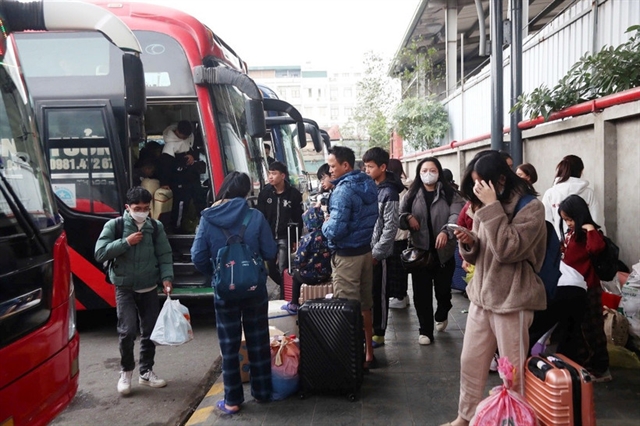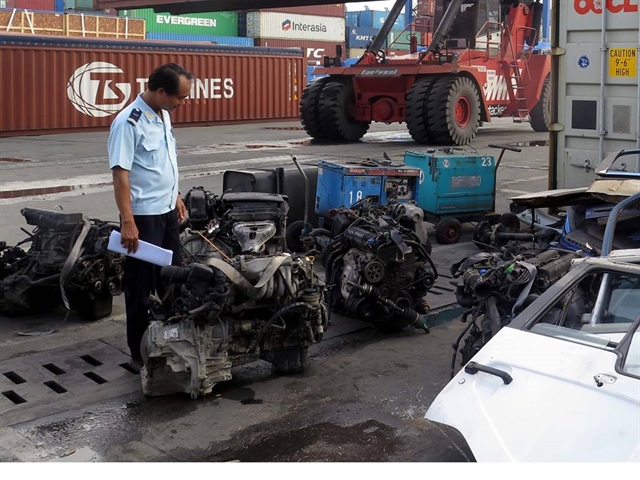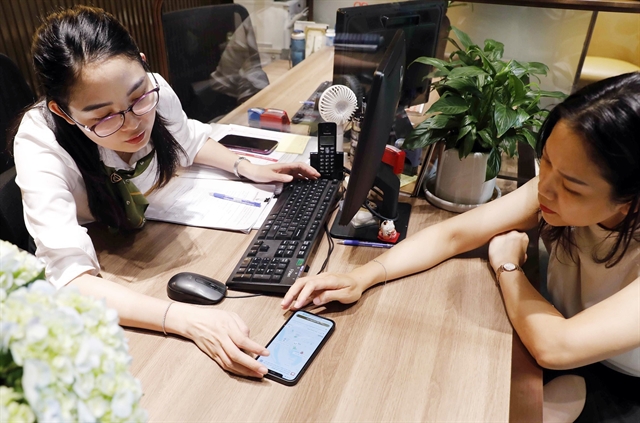 Politics & Law
Politics & Law

.jpg) |
| San Lwin, Deputy Secretary-General of ASEAN for ASEAN Socio-Cultural Community, delivers an opening remark at the 2025 ASEAN Summit on Women, Peace and Security on Tuesday. VNS Photos Khánh Dương |
KUALA LUMPUR — ASEAN’s ten members states reaffirmed their commitment to their regional plan of action on women, peace and security (WPS) at the second ASEAN Women, Peace and Security Summit, which began on Tuesday in Kuala Lumpur.
The summit was organised under the leadership of the ASEAN Committee on Women of Malaysia represented by the Ministry of Women, Family and Community Development.
It is funded by the governments of Australia, Canada, New Zealand, the Republic of Korea, the United Kingdom of Great Britain and Northern Ireland and UN Women.
It aims to strengthen political commitment and capture key progress, challenges and opportunities in implementing the ASEAN regional action plan on WPS.
This year’s summit is taking stock of progress in implementing the ASEAN regional plan and charting the path forward as the women and peace agenda becomes one of the top priorities under the newly adopted ASEAN Vision 2045.
Among Southeast Asian countries, Việt Nam, Indonesia, the Philippines and Timor Leste adopted their national action plans on WPS.
Malaysia on Tuesday launched its first national action plans on WPS at the 2025 ASEAN WPS Summit, while Cambodia and Thailand are developing plans.
Datuk Dr Maziah binti Che Yusoff, Secretary General, Ministry of Women, Family and Community Development and ASEAN Committee Women Leader Malaysia, said Malaysia’s ASEAN Chairmanship in 2025, which carries the theme 'Towards an Inclusive and Sustainable ASEAN Community', signifies that inclusivity and sustainability are not abstract ideals but essential foundations of resilience. In this context, the WPS agenda remains central.
“There can be no sustainability without peace, and no peace without women’s full participation,” she said.
San Lwin, Deputy Secretary-General of ASEAN for ASEAN Socio-Cultural Community, said: “Peace and security have always been priorities of ASEAN. It was the founding purpose that brought our nations together nearly six decades ago.”
“I'm pleased to note that several member states, including the Philippines, Indonesia and Việt Nam, have already adopted national action plans.”
He invited everyone to work together in realising the bloc’s community vision towards 2045 with a resilient, innovative, dynamic, and people-centred ASEAN, where women are engaged meaningfully and equally as leaders, decision-makers, and agents of transformation.
“I call on governments, civil society, partners and community to make ASEAN a model for women, peace and security and a region where peace is truly shared by all,” he said.
Speaking to Việt Nam News on the sidelines of the summit on Tuesday, former Vietnamese ambassador to Myanmar Luận Thùy Dương, currently a representative of the Vietnamese Government at the ASEAN Women for Peace Registry, said after launching the WPS National Action Programme in early 2024, Vietnamese agencies have developed specific action plans, with the Ministry of Foreign Affairs serving as the focal point.
Vietnamese representatives have also actively participated in forums, discussions and training programmes in various countries, she said.
 |
| Luận Thùy Dương (first left), a representative of the Vietnamese Government at the ASEAN Women for Peace Registry, joins a group photo with other ASEAN delegates at the summit. |
In addition to high-level meetings, ASEAN’s WPS initiative includes research such as WPS in ASEAN, in which each member country presents its issues, difficulties and challenges. Việt Nam’s project is titled WPS within ASEAN: A Case of Việt Nam, she said.
The project introduces Việt Nam’s process of developing its national action plan, with reference to the national action plans of other countries, she said.
She said that although the Vietnamese Government has issued regulations on gender equality and the protection of mothers and children, in reality, there are still problems such as domestic violence, sexual harassment in public places, workplaces and production units. Cultural factors also discourage open discussion of these issues. However, Việt Nam has advantages in advancing WPS national action plan including a legal framework that supports WPS, such as the Penal Code, Labour Law, the Gender Equality Law and laws on the protection of mothers and children.
Another advantage is that Vietnamese women have a clear and important role in social organisations. Their representation in the political system and government bodies has increased significantly, she said.
"For WPS, engaging women in policymaking bodies is essential; women must have a voice. Việt Nam has done quite well in this regard," she said.
Vietnamese delegate Đỗ Thị Huyền, chairperson of Hà Nội Association of People with Disabilities, said: “I really appreciate the saying of one speaker that inclusion is the path to peace. In the context of political and economic uncertainties and climate change, many groups remain overlooked. It is especially important that national action plans on WPS include the voices of vulnerable groups such as persons with disabilities, ethnic minorities, women and children.”
National action plans should create space for these groups to speak up freely about their risks, challenges, and the ways they can overcome them. In both national and regional action plans, once attention is given to these vulnerable communities, it ensures inclusiveness. When they are included, the safety and security of all other groups will also be strengthened, she said.
Launched in 2023, the biennial ASEAN WPS summit is the ASEAN region’s largest platform for dialogue on peace and security.
The 2025 ASEAN WPS Summit comes on the 25th anniversary of United Nations Security Council Resolution 1325 on WPS and the 30th anniversary of the Beijing Declaration and Platform for Action, considered the most progressive blueprint for achieving gender equality for all women and girls. VNS




